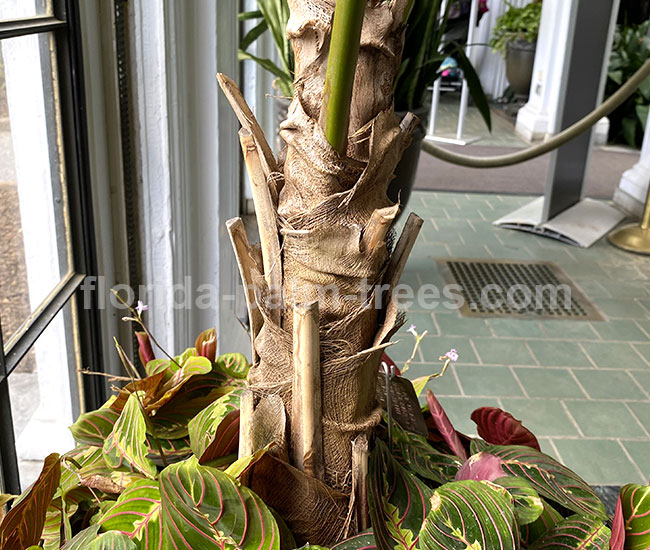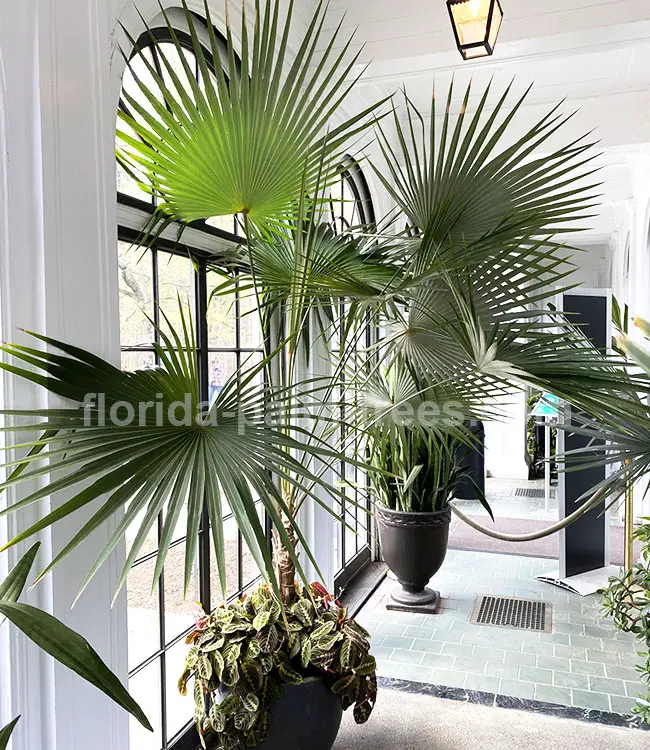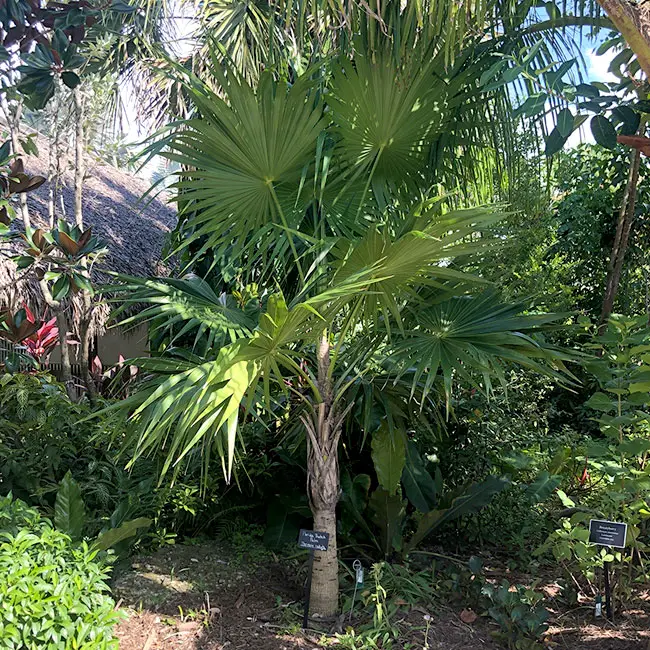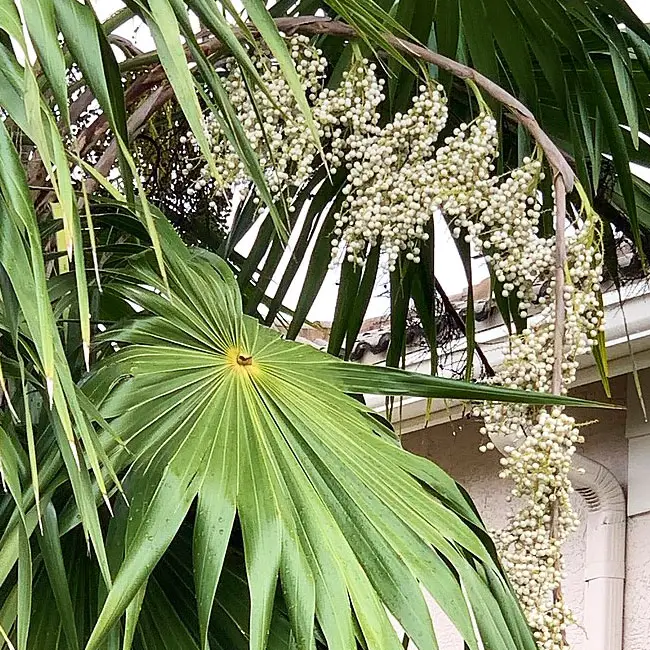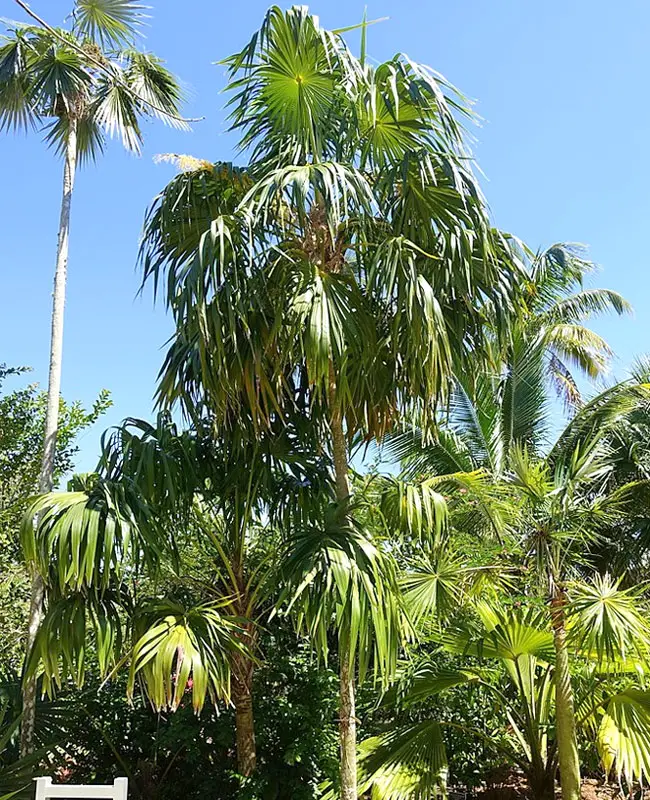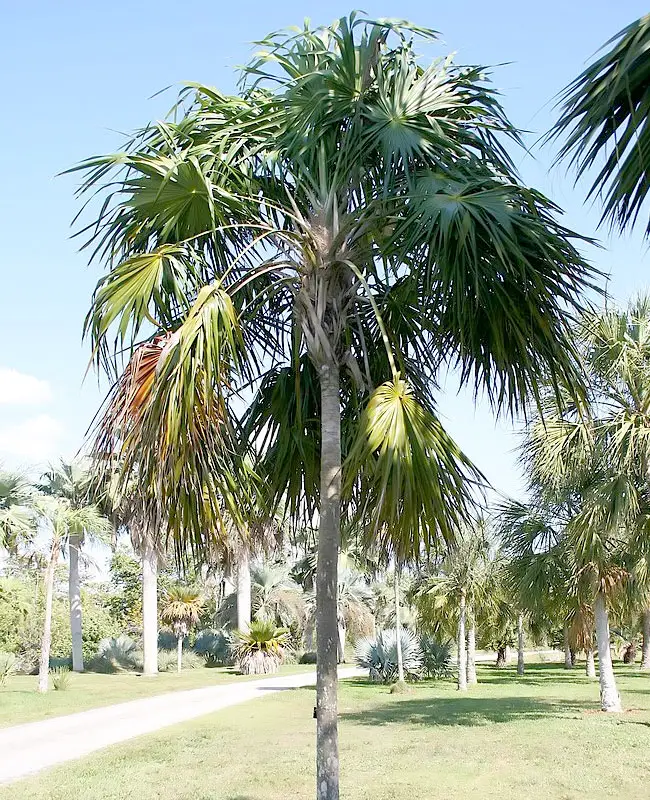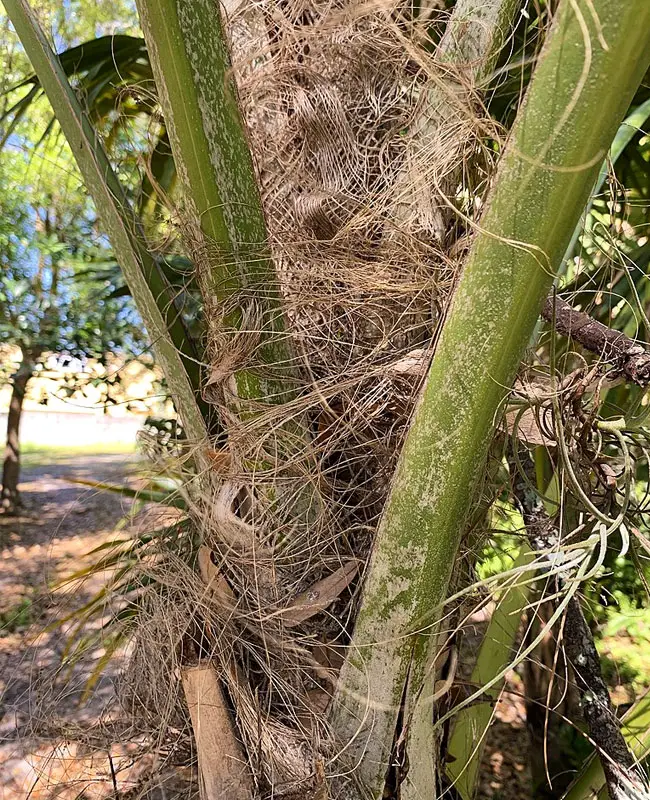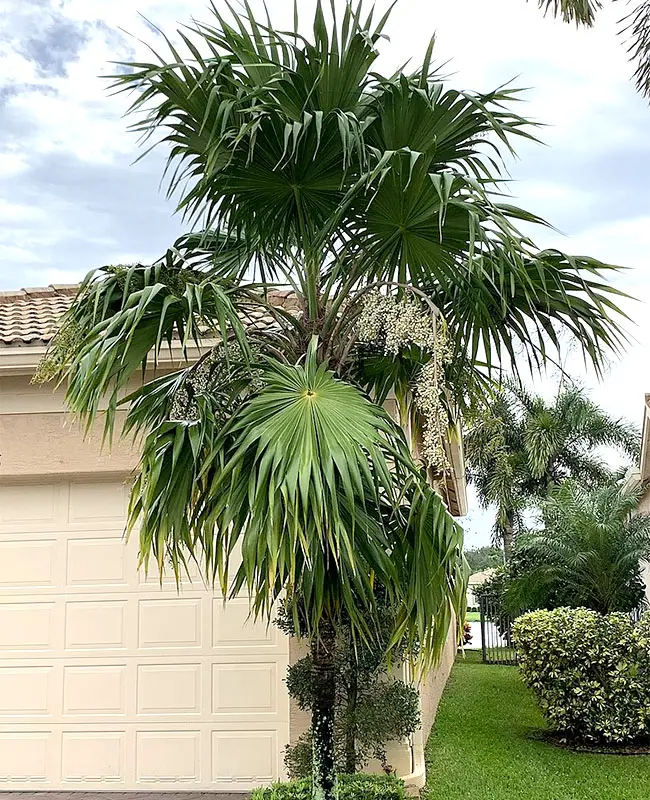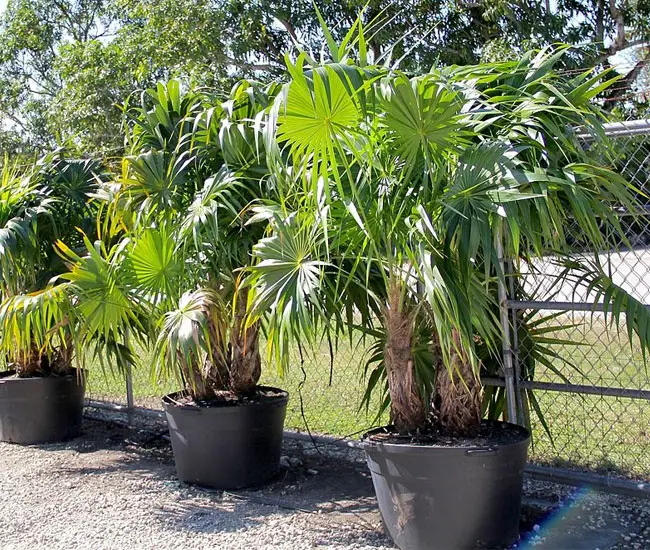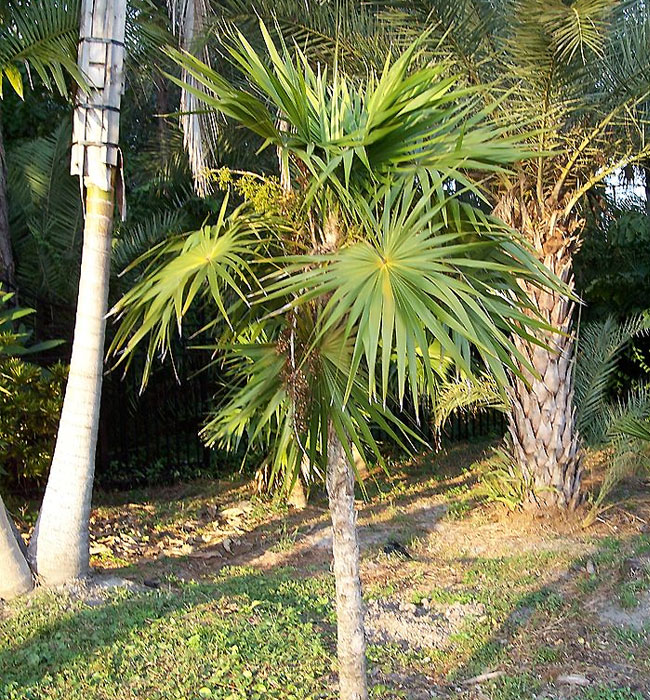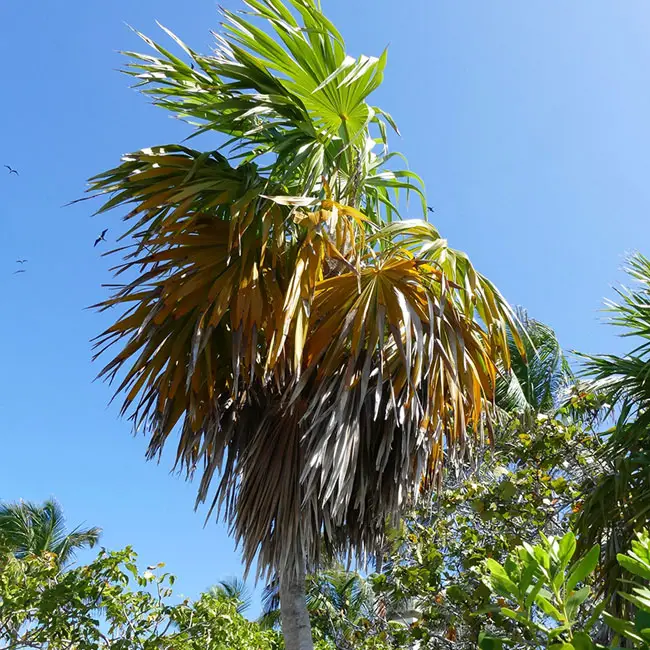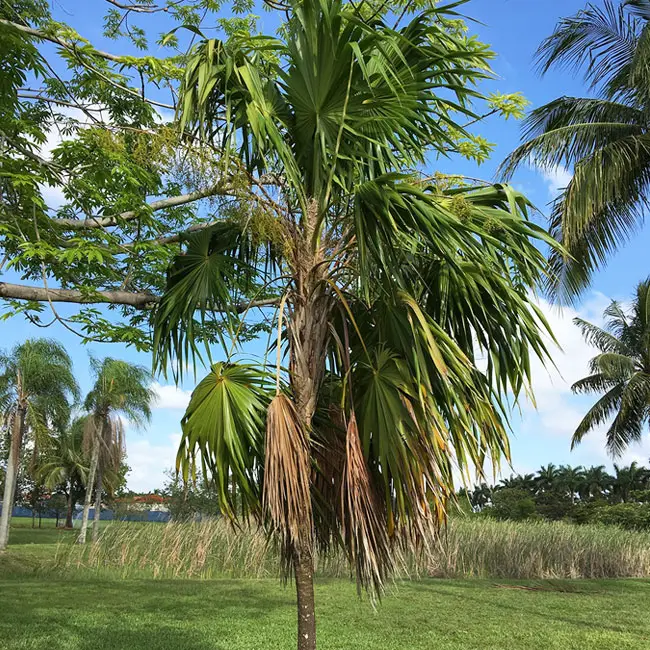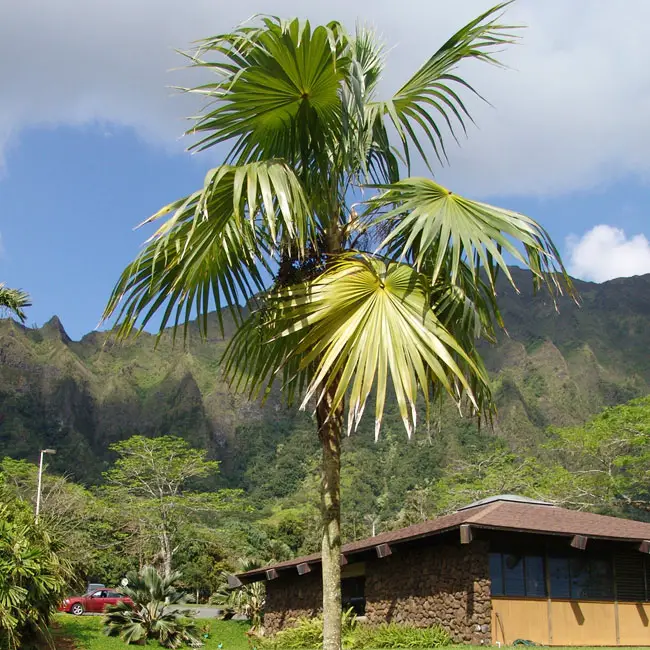
The Florida Thatch Palm Tree, scientifically known as Thrinax radiata, is native to the Florida Keys and is highly adaptable to a wide range of conditions. It is characterized by its graceful and slender trunk, large fan-shaped fronds with deeply divided leaflets, and a dense, symmetrical crown.
Its lush greenery and elegant appearance make it a striking addition to tropical and subtropical landscapes, providing both aesthetic beauty and functional shade.
Remarkably, the Florida Thatch Palm Tree can also thrive when grown indoors, making it a versatile choice for both outdoor and indoor greenery.
Quick Facts:
| Scientific name: | Thrinax radiata |
| Common names: | Florida Thatch Palm, Silk-top Thatch Palm, Sea Thatch Palm. |
| Origin: | Native to Florida Keys. |
| Growth Rate: | Slow. Up to 20ft tall and 10 ft wide. |
| Cold Tolerance: | USDA Zones 10b (35 to 40 F) to 11 (above 40 F). |
| Light Req: | Partial shade to full sun. |
| Water Req: | Low. |
| Soil Req: | Widely adaptable, but prefers alkaline soils |
| Fruit: | Yes. White, green. Not edible. |
| Propagation: | By seed, germinating in 2 – 3 months. |
Florida Thatch Palm Appearance
Trunk: The Florida Thatch Palm typically boasts a slender and solitary trunk that gracefully ascends to its crown. The trunk is often smooth and covered with a grayish-brown to light-gray bark that is visually appealing.
As this palm matures, the lower part of the trunk may become slightly swollen, enhancing its aesthetic appeal.
Leaves (Fronds): The fronds of the Florida Thatch Palm are one of its most distinctive features. These fronds are large, fan-shaped, and deeply divided into numerous segments, giving them a lush and feathery appearance.
The fronds are usually bright green, contributing to the palm’s overall tropical allure. Each frond can measure up to 3 to 4 feet (approximately 0.9 to 1.2 meters) in diameter, creating a lush and dense canopy.
Leaflets: The fronds are composed of numerous leaflets that are arranged like the fingers of a hand. These leaflets are deeply divided, with each leaflet having a linear shape and a slightly drooping appearance. The arrangement of the leaflets creates a charming and airy effect in the palm’s canopy.
Crown: At the top of the trunk, the Florida Thatch Palm forms a dense crown of fronds that radiate outward in an attractive and symmetrical fashion.
This crown is not only visually pleasing but also provides excellent shade and shelter, making it a popular choice for landscaping in warm and sunny climates.
Flowers and Fruits of the Florida Thatch Palm
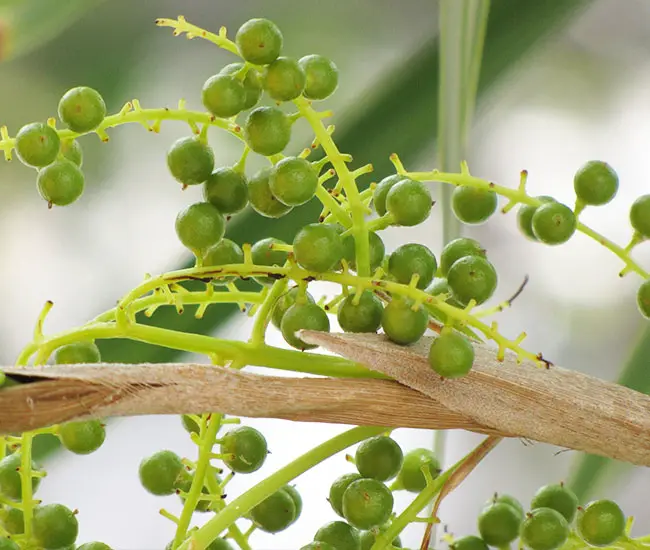
The Florida Thatch Palm (Thrinax radiata) produces unassuming greenish-white flowers that are relatively small in size. These flowers are clustered on the palm’s inflorescence, which emerges from the crown of its lush fronds.
Although not particularly showy in appearance, these flowers serve a vital role in the palm’s reproductive process by attracting pollinators such as bees and other insects.
Following successful pollination, the palm produces small, round, and fleshy fruits. These fruits begin as green when they initially form but undergo a gradual transformation as they ripen.
When fully mature, they adopt a striking black hue, which creates a notable contrast against the palm’s vibrant green fronds. This transition in fruit color, from green to black, adds a unique and eye-catching element to the palm’s overall appearance.
The ripe fruits may contain seeds, which are often dispersed by birds or other wildlife, contributing to the natural propagation of the Florida Thatch Palm.
While the flowers may not be visually striking, the evolution of the fruits from green to black is an intriguing and distinctive characteristic of this palm species, enhancing its overall allure.
How To Care For Florida Thatch Palm
Light: Florida Thatch Palms thrive in well-lit conditions, relishing full sun exposure. They can also tolerate partial shade, but for optimal growth and development of their lush fronds, providing ample sunlight is essential.
Soil: Well-draining soil is a must for these palms. They excel in sandy or loamy soils that allow water to pass through freely, preventing waterlogged conditions that could lead to root rot. Ensuring proper drainage in the planting area is vital.
Watering: Regular but not excessive watering is crucial. Florida Thatch Palms require consistent moisture, but overwatering can be detrimental. Allow the top layer of soil to dry out slightly between watering sessions to strike the right balance.
Temperature: These palms are well-suited to warm and tropical climates. They thrive in temperatures that typically range between 65°F to 80°F (18°C to 27°C). While they can tolerate short periods of cooler weather, they should be shielded from frost to prevent damage to their fronds and overall health.
Pruning: Pruning should be minimal, primarily limited to the removal of dead or yellowing fronds. Excessive pruning can stress the palm and reduce its growth potential.
Fertilization: Occasional fertilization during the growing season, typically in spring and summer, ensures that the palm receives essential nutrients. A balanced, slow-release palm fertilizer is often used to promote healthy growth and vibrant fronds.
Pest and Disease Management: Florida Thatch Palms are generally hardy against pests and diseases. However, it’s important to monitor them for potential issues such as mealybugs and spider mites.
Prompt treatment with appropriate measures, such as insecticidal soap or neem oil, can address any problems that may arise. Proper drainage also helps prevent root rot, one of the few potential diseases that can affect these palms.
Transplanting and Repotting: While Florida Thatch Palms are typically grown in the ground outdoors, if transplanting or repotting is necessary, ensure that the new location or container has well-draining soil and the right sunlight exposure.
Propagation: Propagating Florida Thatch Palms is typically achieved through seeds found in their fruits. While it is a slow process, it remains the most reliable method for expanding a collection of these palms.
Florida Thatch Palm Pictures
